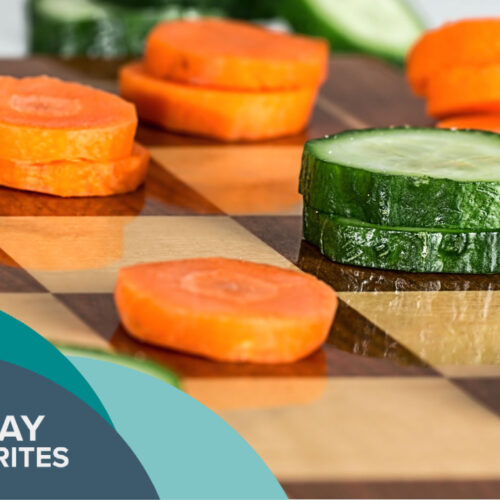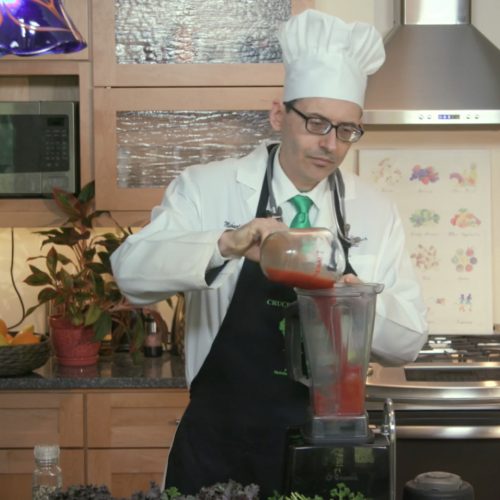Avocados, greens, and lutein and zeaxanthin supplements are put to the test for improving cognitive function.
Dark green leafy vegetables are packed with a brain antioxidant called lutein, so increasing our greens intake “could be an important public health strategy for reducing the risk of visual or cognitive impairment.” Lutein is the dominant dietary pigment in the retina of the eye, as well as the brain. So, “it is not surprising that macular pigment density”—the concentration of lutein in the center of the eye called the macula—“was found to be significantly correlated with their levels in matched brain tissue.” This may explain the link between cognitive function and how much of these nutrients from greens you can see in the back of the eye. It’s assumed the neuroprotection is thanks to lutein being such a powerful antioxidant, but it has anti-inflammatory properties, too.
“This relationship between lutein and zeaxanthin [another greens nutrient] and visual and cognitive health throughout the lifespan is compelling.” That statement, however, was based on observational studies, where you observe that higher lutein levels and brain function seem to go together.
You don’t know if it’s actually cause and effect, though, until you put it to the test. As I discuss in my video Friday Favorites: Do Lutein Supplements Help with Brain Function?, “Could L [lutein] and Z [zeaxanthin] be supplemented as part of a lifestyle intervention to both improve central neural [brain] function and reduce the probability of progression through the various stages of dementia?” There’s a reason everyone is so excited about the possibility. Hopeful data from eye health studies have convinced many ophthalmologists to start recommending people to increase their intakes of lutein and zeaxanthin to prevent and treat macular degeneration, a leading cause of age-related vision loss. You don’t have to take pills, though. Adding as little as 60 grams of spinach a day for a month can significantly boost macular pigment in most individuals. That’s only about one-fifth of a ten-ounce package of frozen spinach.
Greens aren’t good for just treating diseased eyes. A randomized, placebo-controlled study found that the goodies in greens can improve visual processing speed in young healthy people—like when you’re trying to hit a fastball and your body has to begin reacting even before you consciously register that the ball is coming towards you. There are also real-world benefits outside of the Major League, though, such as improving visual performance during driving.
What about cognition? A randomized, double-blind, placebo-controlled trial gave adults with an average age of 73 the equivalent of either a daily half cup of cooked kale or a full cup of cooked spinach, and found significant improvements in cognitive function compared to those randomized to the placebo.
It may even work in young adults averaging around age 21. In one study, daily supplementation with that same amount of lutein and zeaxanthin not only increased their macular pigment, but it resulted in significant improvements in brain function, including spatial memory, reasoning ability, and complex attention.
Have researchers ever tried putting whole foods to the test? It’s hard to get Americans to eat greens every day, but not so hard to get them to eat green guacamole. A six-month, randomized, controlled trial tested the effects of the intake of avocado on cognition. What was the control? Study participants either ate a daily avocado, potato, or cup of chickpeas, and those in the avocado group had a significant improvement in cognitive function. But, to the Hass Avocado Board’s chagrin, so did the subjects in the potato and chickpea groups. That’s the problem with having healthy placebos! Maybe they should have used iceberg lettuce as the control.
What about the impact on cognition of those who really need it, like Alzheimer’s disease patients? Researchers found that their vision got better, so that’s good, but their cognitive function didn’t change significantly. Now, it’s possible that eating whole foods, like dark leafy greens, might have worked better than just the pigments in pill form.
Yes, “oxidation and inflammation appear to be key to both diseases [Alzheimer’s and macular degeneration], and neither seems particularly amenable to late-stage treatments.” That’s why prevention is critical. Reducing oxidation and inflammation in the earliest stages may be our most promising approach.



